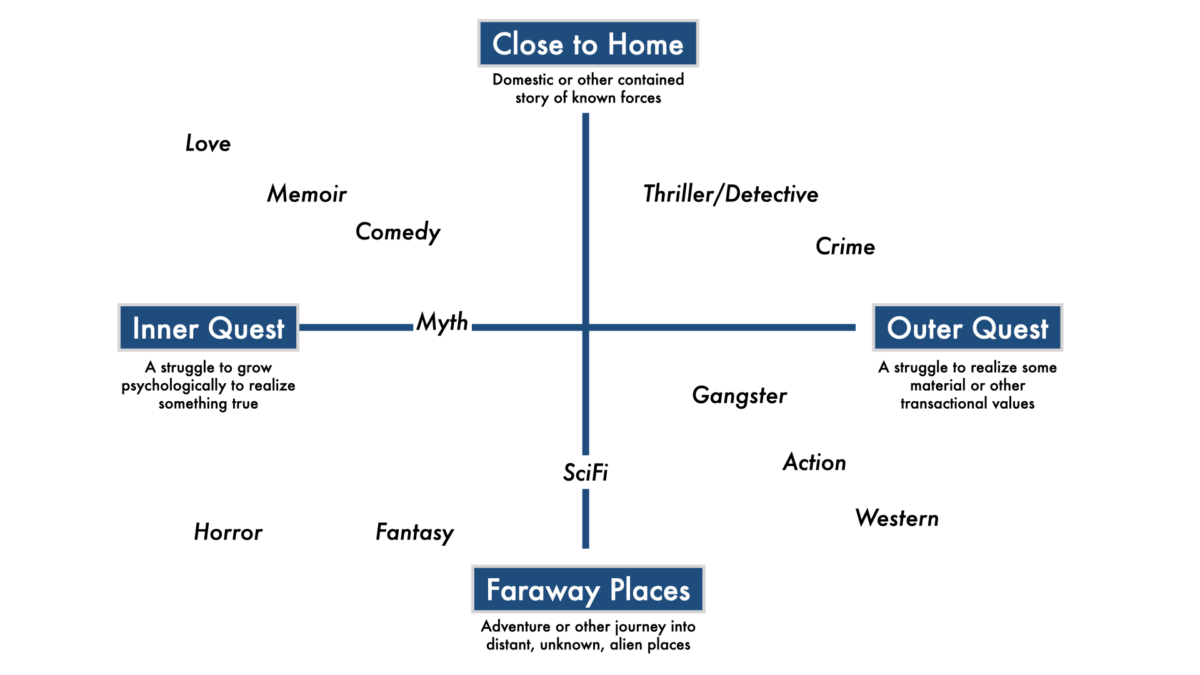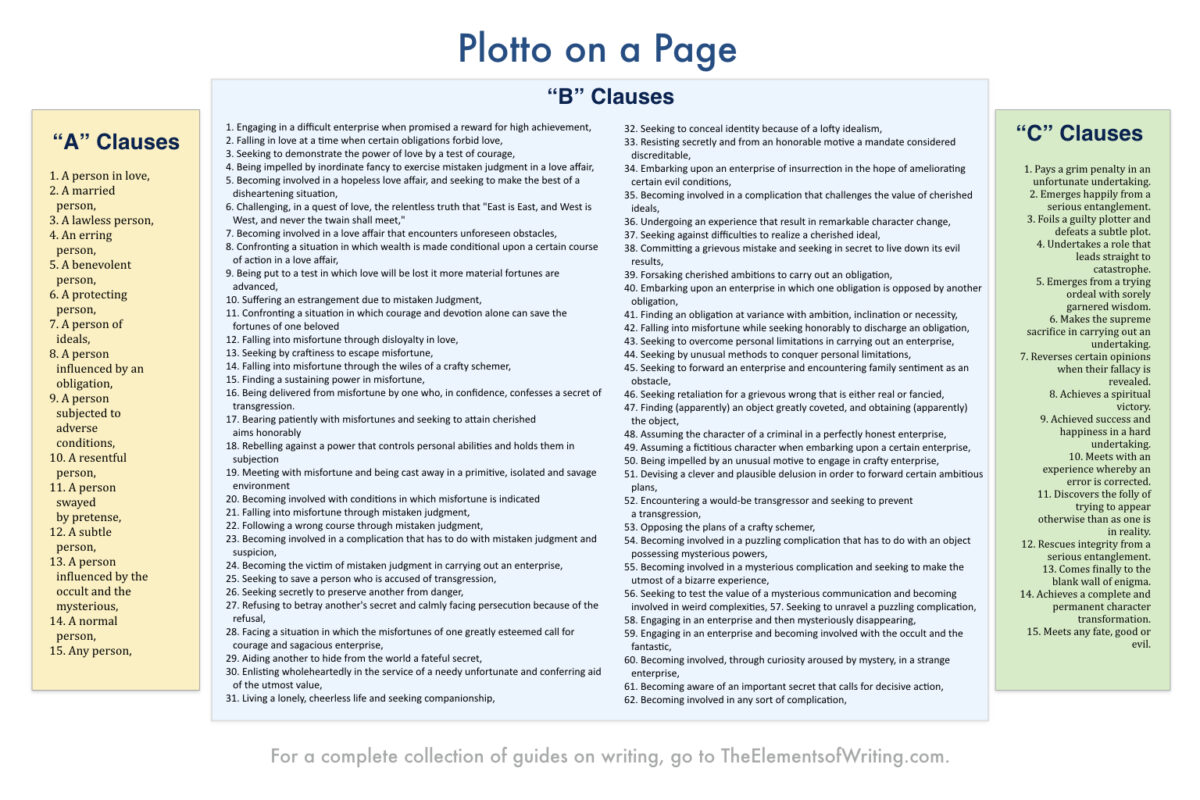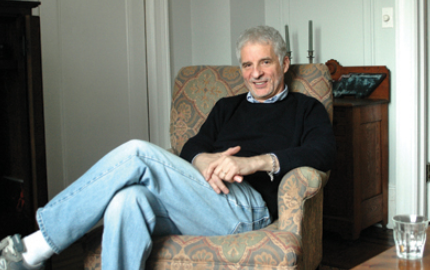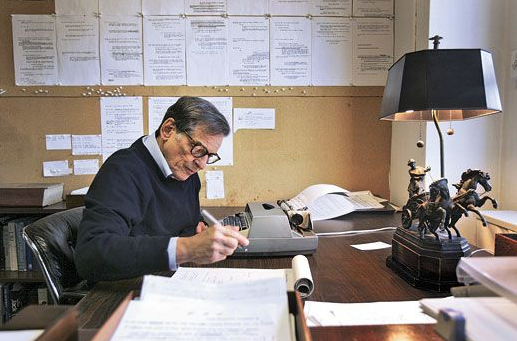-

Whatever Happened to TED Talks?
•
Have you ever gone back to an old school? Driven past an old Little League field where you used to play? Or stopped by an old mall, where you once did all your shopping, and found it cluttered with Dollar Stores and fast-fashion outlets? The experience is deflating. In your own mind, you imagined…
-

Genre, Simplified
•
To succeed as a storyteller–or as a musician, architect, scientist, or other creative person–you must work within a specific genre. The story genre provides the style, rules, and expectations for the tale. What kind of hero and other characters will we meet in the story? What kinds of settings, struggles, and values will we…
-

Broken and Whole
•
All my problems are meaningless, But that don’t make them go away. – Neil Young, “On the Beach” There is a crack in everything. That’s how the light gets in. – Leonard Cohen, “Anthem” Every story is about being broken and trying to become whole. All of us, even the happy ones among us,…
-

The Lucrative Drama of Super Bowl Ads
•
It’s Super Sunday again, and all the chatter is about the commercials—that and Taylor Swift. But every year, millions tune in for the ads. This year, a 30-second ad goes for $7 million. At that price, companies better have the perfect message. Luckily, about a decade ago, a couple of business professors figured out…
-

Eric R. Williams on the Machinery of Genre and Storytelling
•
When Alfred Hitchcock roamed the sets of his movies, he could be seen with a small book called Plotto. With this book of prompts, storytellers can connect 15 characters types (listed in Column A) to 62 conflict situations (Column B) and 15 consequences (Column C). In a sense, Plotto is a guide for mix-and-matching…
-

Let Us Now Praise Robert McKee
•
As the script doctor steps off the stage, a look at his impact and storytelling lessons Years ago, when I was transitioning from academic life to nonfiction narrative writing, I attended Robert McKee’s immersive Story Seminar. For three days, I sat in a New York theater for a complete course from one of Hollywood’s…
-

‘What If?’ Angus Fletcher on the Brain and Storythinking
•
What if (spoiler alert) all the wisdom of writing, storytelling, problem-solving, adventure, crisis management, and deep learning could be summed up in a two-word phrase? Thanks to Angus Fletcher, a leading authority on storytelling and the brain, we know that two-word phrase: “What if?” Fletcher, the author of the landmark work Wonderworks: Literary Invention and…
-

Why the Hidden Architecture Matters
•
People immerse themselves in stories for all kinds of reasons. They want escape or adventure. They care about the characters. They love the world of the story. They love the familiarity of a genre. Many appreciate the “moral of the story,” whether it’s subtly developed or explicitly stated. Readers sometimes get annoyed when they…
-

John Truby’s Story Beats for 14 Genres
•
As John Truby says in The Anatomy of Genres, a genre is not just a familiar way of living in the world of stories. It is a system. Any system–from the biological system of the body or the internal combustion engine of a car–succeeds only when each of its component parts performs its job and…
-

John Truby on the New Rules of Genre Writing (Part 2)
•
This is the second part of a two-part interview with film guru John Truby. You can read the first part here. The sequence of genres could be arranged along Aristotle’s narrative arc, from the early basic challenge of survival to the ultimate development of the heart. In my mind Aristotle is probably the greatest…
-

John Truby on the New Rules of Genre Writing (Part 1)
•
This is the first part of a two-part interview with film guru John Truby. You can read the second part here. The idea of genre can be a touchy topic among writers. “Don’t classify me, read me,” Carlos Fuentes groused. “I’m a writer, not a genre.” Genre refers to a type of story–the kinds…
-

Will Storr on Storytelling, Writing, and the Brain
•
Will Storr is England’s Malcolm Gladwell–a polymath who uses stories to explore complex and compelling ideas. His books include The Heretics, Selfie, Will Storr vs. The Supernatural, and the Science of Storytelling. His latest, The Status Game, will be released in September. His is also author of a novel called The Hunger and The…
-

Finding Focus and Organizing Ideas with Architect Christopher Alexander
•
How can creative people–architects and planners, artists and writers, musicians and performance artists–foster a sense of “wholeness” in their work? Christopher Alexander, one of the last century’s most important architects, who died last month at the age of 85, offers a mind experiment to explore this question. Take a blank piece of paper, he…
-

How To Draw Readers into the Story – Right Away
•
If you want a fun ride through the bizarro world of Florida, the modern spirit of destruction, and how ordinary people get pulled into wild tales of adventure, you can’t do better than Carl Hiaasen. Hiaasen is a columnist for the Miami Herald and a bestselling author. Everything he writes offers a clinic on…
-

The Broken House of Race in America
•
America is now in the midst of one of its periodic awakenings about race. Every generation or so, something happens to force race into the consciousness of mainstream America. Sometimes these awakenings lead to reform; sometimes they don’t. The current awakening arose from the George Floyd killing in Minneapolis and the growing realization (long…
-

Use Plotto. It Was Good Enough for Hitch …
•
Wherever he went, Alfred Hitchcock carried a small book called PLOTTO. The book provided a mix-and-match formula for storytelling. By taking an idea from three categories–A, B, and C–the “master of suspense” could fashion the plots that terrorized the world for decades. Now, you can get it all here…on a single page. For more…
-

Tommy Tomlinson on the Craft of Writing
•
This is the second part of a two-part interview with the longtime columnist, author, and podcaster Tommy Tomlinson. You can find Part 1 here. You’ve devoted your whole life to being a writer. It shapes everything you do. How and why did you become a writer? Who were your greatest influences? I come from…
-

Daniel Menaker on Tragedy, Checking Facts, Writing, and the State of Publishing
•
Daniel Menaker likes stories that go “spooling off” in different directions, in unpredictable but necessary ways. His own life—as a red diaper baby, high school teacher, fact checker, editor, and writer—has had its own way of spooling off in different directions, sometimes tragically and sometimes humorously. Menaker’s first story treated, fictionally, the death of…
-

How He Does It: Robert Caro Explains His Research and Writing Process
•
So far, Robert A. Caro has published 4,816 pages of detailed, riveting history in five books–the first about New York’s master planner Robert Moses (The Power Broker), the next four about the life and times of President Lyndon Johnson (The Path to Power, The Means of Ascent, Master of the Senate, and The Passage…
-

Tina Cassidy on Beats, Book Topics, Foils, and Plotting
•
Like other journalists of this late-print/early-digital age, Tina Cassidy has taken on a number of challenges as a writer. And more than most, she has succeeded. Cassidy was a reporter for ten years at The Boston Globe, where she covered business, politics, and fashion. A Rhode Island native, she published articles in the Providence Journal…
